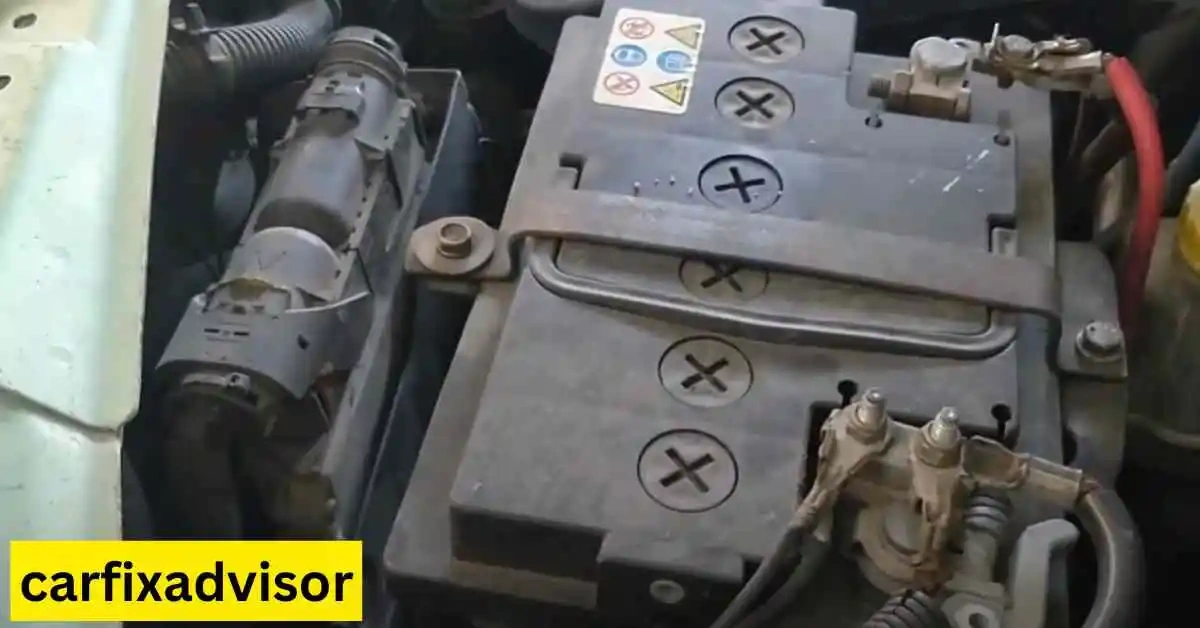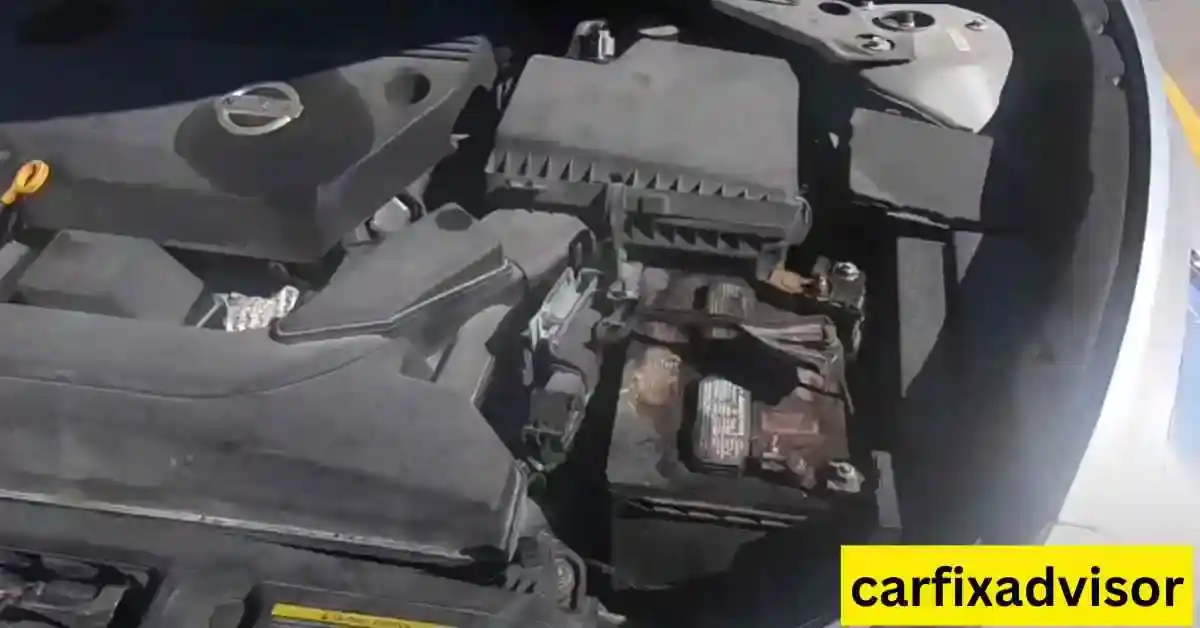If you’ve ever heard a buzzing, crackling, or hissing noise coming from your lead acid battery making noise while it’s charging, you’re not alone. It’s a strange and sometimes concerning sound that many people experience at some point. But what’s going on? Is it normal for a lead acid battery to make noise when charging, or does it signal a deeper issue?
In this article, I’ll break down why Lead Acid Battery Making Noise When Charging, what the causes are, and most importantly, what you can do about it. If you’re unsure whether it’s a problem or just a quirk of your battery, read on to get the answers you need.

What Is a Lead Acid Battery and Why Does It Make Noise When Charging?
Lead acid batteries, the type typically found in vehicles, are reliable workhorses. These batteries operate through a chemical reaction involving lead and sulfuric acid, generating electrical energy. During the charging process, the battery is replenishing its charge by reversing this reaction, which leads to the production of gas.
1. The Science Behind the Noise
The hissing or bubbling sound you might hear is caused by the release of hydrogen and oxygen gases during the charging process. This is a normal part of the charging cycle, especially when the battery is being charged at a higher rate. These gases are produced as the sulfuric acid in the electrolyte reacts with the lead plates inside the battery, and the battery tries to replenish its charge.
I was surprised to learn that this noise doesn’t always signal a problem—especially when it’s happening during the early stages of charging or if the battery is a bit older. Overcharging or improper charging rates can increase this gas buildup, but at the right charge rate, the gases are simply vented harmlessly out of the battery.
2. Why the lead acid battery making noise Some Cases
The noise is typically more noticeable when the battery is being overcharged or charged too quickly. When this happens, the electrolyte inside the battery boils, which increases gas production. This situation occurs more often with older batteries or when the charging system isn’t working optimally. High temperatures caused by rapid charging can exacerbate the gas buildup, resulting in an increased volume of noise.
I noticed this with one of my older batteries, which had started making a louder, more persistent noise when charging. I later found out that the charger was set to too high of a voltage, which caused the electrolyte to overheat.
Solutions I’ve Tried to Address Noise From My lead acid battery making noise
After dealing with noisy charging sessions myself, I found a few ways to minimize or eliminate the noise and avoid damaging my battery. Below are some strategies that worked for me:
1. Using the Correct Charger Settings
One of the first things I did was check the charging settings. Most lead acid batteries have a recommended voltage and current for optimal charging. Overcharging (especially with a charger that doesn’t regulate the voltage) can cause excessive bubbling, hissing, and gas release. I switched to a charger with an automatic shut-off or a regulated charging mode to ensure I wasn’t overcharging the battery. This greatly reduced the noise.
In fact, using the right charger helped me realize that the noise was coming from an old, inefficient charger I had been using, which was charging too aggressively. Once I made the switch, the noise was significantly quieter and less frequent.
2. Avoid Overcharging
Overcharging is one of the biggest culprits for excess noise, so I learned to monitor the charging process carefully. Modern chargers have built-in systems that stop charging once the battery is full, preventing overcharging. However, if you’re using an older charger, you should try not to leave the battery plugged in for too long.
To be safe, I now set timers on my chargers to ensure I don’t leave the battery charging longer than necessary. This has saved my battery from excessive gas production and bubbling, keeping things quiet and safe.
3. Regular Battery Maintenance
Another key solution I found is regular maintenance of the battery. This includes checking the electrolyte levels and ensuring the terminals are clean and free of corrosion. If the battery has low fluid levels, it can cause the battery to overheat, leading to excessive gas buildup and noise.
I’ve made it a habit to top off the electrolyte levels with distilled water if needed. Additionally, I clean the terminals periodically to prevent corrosion, which can also contribute to electrical issues that might affect the charging process.
FAQs On Lead Acid Battery Making Noise When Charging
Why Does My Battery Make a Sound When Charging?
If your lead-acid battery is making a sound during charging, it’s likely due to the gas being released inside the battery. When the battery charges, the electrolyte can cause a chemical reaction that produces gas, which might bubble or hiss. This sound is typically normal but should be monitored to ensure it’s not excessive or linked to a more serious issue.
How Do I Know if My Lead-Acid Battery is Damaged?
A damaged lead-acid battery can show a variety of signs. You may notice:
Difficulty starting your car.
A battery warning light on the dashboard.
The battery case swelling or leaking.
A strange smell, often sulfur-like, which can indicate internal damage.
If you notice any of these, it’s time to get your battery checked by a professional.
What Does It Mean If a Battery is Making Noise?
If your battery is making noise, it usually means that the electrolyte inside is bubbling or gassing as a result of charging. This can happen when the battery is overcharging or charging too quickly. A little noise can be normal, but if it’s loud or continuous, it could indicate a problem such as overcharging, which can damage the battery.
Why Does My Sealed Lead-Acid Battery Make Noise When Charging?
Sealed lead-acid (SLA) batteries can make noise due to the release of gas, especially if they are overcharged or if the charging process is too fast. Unlike flooded batteries, SLA batteries don’t have vents, so the gas pressure can build up inside and cause a popping or hissing noise. It’s a good idea to check the voltage and charging rate to ensure they’re within safe limits.
What Kills Lead-Acid Batteries?
Several factors can shorten the lifespan of lead-acid batteries:
Overcharging – causes overheating and damage to the internal plates.
Deep discharges – draining the battery too low too often can cause permanent damage.
Extreme temperatures – both hot and cold can impact battery performance.
Lack of maintenance – not regularly checking electrolyte levels or cleaning terminals can lead to corrosion and failure.
How to Test if a Battery is OK?
To check if your lead-acid battery is still in good condition:
Check the voltage – A fully charged battery should read about 12.6 to 12.8 volts.
Perform a load test – Use a battery tester or take it to a professional to see how it handles under load.
Inspect for corrosion or leaks – Look for any visible damage around the terminals or casing.
Check the fluid levels – If you have a flooded battery, make sure the electrolyte levels are adequate.

